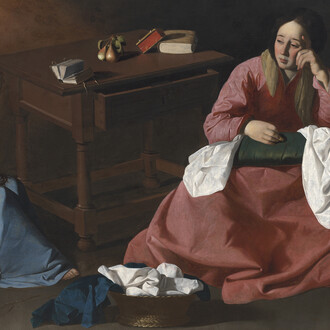Bosse & Baum is pleased to present Meruntö: in the house of spirits, the artist’s first solo show at the gallery. The research behind this new body of work is a continuation of the artist’s lifelong interest in nature, and her history of working as part of the environmental movement in Venezuela. The exhibition recalls the cosmic force and energy which derives directly from the Sun and gives life to all organisms on Earth: this being the root of the Pemon concept Meruntö.
The exhibition mirrors the artist’s own life in a state of flux between countries and cultures, and her continuing exploration into points of connection between people and plants that surround us. In all these works the artist has used plants that grow in tropical areas: most species either from Caracas, her native city, or Canaima, the ancient territory that dates to the Pre-Cambric, where the Amazon meets the savanna – both regions where the artist produced the works, and sourced material for this exhibition. The Pemon are the indigenous communities that live in Canaima and other areas of the “Gran Sabana”. Using a Pemon word is a way for Pizzani to honour the ancestral cultures of her home country. It is also related to the various experiences the artist has had working with indigenous groups on environmental and community projects such as with the Piaroas, an indigenous people of the Amazonia and the Venezulan Yekuanas, who live in the Amazonas and Bolivar bordering Brazil.
The solar prints are produced using dried plants – such as the Riqui-Rique and a camera-less photosensitive process. Some are anthropomorphic, like spirits of the vegetal world, whilst others appear as universal symbols such as spirals and snakes. The colour photographic works in the exhibition, titled such as Palm or Turgua, are part of a series titled Tactile Botánica, where Pizzani has chosen plants related to trade and colonial routes that interlace the stories of Europe, Africa and South America, and has photographed herself holding them to capture the act of an embrace between hand and plant. The artist has created a site-specific installation titled Kanaimö, which is made up of largescale photographic and solar prints on muslin fabric.
They bring in additional imagery of vegetation while the transparency of the material explores the recurrent idea of a second skin or a membrane, a concept that the artist has been exploring in recent years. Further expanding onto her research on skin, Pizzani uses organic matters like corn to create surface textures of her ceramic works, such as Escarlata and Palmas, turning them into reptilic, hybrid beings. By incorporating fragments of dry vegetation and live plants from South America into English clay, the sculptures embody a meeting of cultures and territories.
Lucía Pizzani (b. Caracas, 1975). She holds a BA in Communications Studies, (Universidad Católica Andres Bello, Caracas), Certificate in Conservation Biology from CERC at Columbia University (New York) and Master in Fine Arts from the Chelsea College of Art and Design (London).
Recent collaborations and commissions include: Manto, a solo show at Galeria La Cometa, Madrid, Tiempo Membrana, a survey show of works from 2008/2022 at Hacienda la Trinidad Cultural Centre, Caracas, Planet B Climate Change and the new sublime, curated by Nicolas Bourriaud where she was commissioned with new works for both Chapter 1 and Chapter 3 of this exhibition at Palazzo Bolanni in Venice, a new mural work invited by Sol Calero to exhibit in Cabilla a project at the TEA Museum in Tenerife, Casa Wabi and the Puerto Escondido Botanical Garden (Oaxaca, Mexico), LaunchPad Lab (Charente, France), and The Photographers Gallery (London). Her work has recently been incorporated to the Tate Collection, UK and is also part of the Essex Collection for Art from Latin America ESCALA, Colección Patricia Phelps de Cisneros (CPPC), Catherine Petitgas Collection, Archivo Fotografía Urbana, Fundación Eugenio Mendoza, Colección Juan Yarur and Museum Of Latin American Art (MOLAA) among other private and public collections.













